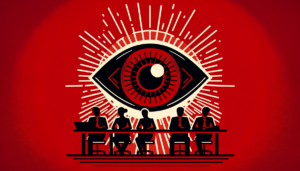The future of work is here: What does ‘good’ look like?
- 5 Min Read
Kevin Empey, Founder and Managing Director of WorkMatters, argues that to solve future of work challenges, we need to move on from the hybrid debate and terms such as ‘smart working.’ So, what are high-performing organizations and HR leaders doing to instil future of work principles at the executive, managerial, team, and individual level?
- Author: Kevin Empey
- Date published: May 23, 2023
- Categories

There is no doubt that ‘future of work’ topics that were already in play before 2020 are now accelerating up the agenda. These range from digitalization, ESG, and future fit skills or talent concerns, to work re-design and the need for improved organizational resilience & adaptability.
These issues will play out in the months and years ahead as we grapple with shorter-term priorities. Organizations are joining the dots between the numerous short and longer-term business and people strategies that exist today.
Addressing the future of work by moving on from the past
To help give us the space and time to attend to such important themes, we need to move on from the debate around hybrid working. Flexible working in various forms, informed by different influences on working styles such as Agile, is here to stay. The societal need and demand for flexibility in how and where we work, and the capability to deliver it, were already big issues in the world of work well before 2020. Instead, the organizational requirement to continually re-design will continue at pace. This will help us flexibly retain, engage, and access talent and skills when and where needed.
In terms of transitioning to new, post-pandemic ways of working, it is still early days. But for most, it is now clearly a case of moving on from the uncertain, ‘getting started’ experiences of 2021 and 2022. We need a more confident and assured ‘up and running’ phase in 2023.
While labels serve a purpose, it is now time to transition from terms like ‘hybrid,’ ‘agile,’ ‘blended’ or ‘smart’ ways of working to just ‘ways of working’. By doing so, we normalize flexible and evolving work habits and practices.
We are already seeing positive results and great examples of what ‘good’ looks like. Managers and their teams pick from the menu of concepts and practices such as agile, hybrid, and smart to create their own working methods that meet their needs. They are making ongoing change and revision an important habit for the future. So, what does ‘good’ look like? What can HR leaders learn to shift the conversation away from tired terminology toward ways of working that are high performing at the team and individual levels?
Executive teams
Buoyed by the experiences of the last few years, executive teams are authentically reflecting on their leadership habits, behaviors, and ways of working. They are assessing how they collectively and individually show up together and with their teams. Crucially, they are role-modeling what high-performance teamwork in a blended work environment looks like for others.
With support from the CEO, HR leaders are stepping into a coaching and facilitation role, enabling this change of working style at the top. CHROs, CPOs, VPs, and Directors are leading by example themselves and supporting executives collectively and individually in their roles as executive team members and leaders of their functions.
Managers
‘Good’ managers are focused on empowering their teams. They provide purpose, clarity, energy, and freedom to develop ways of working that deliver results. All the while, they are achieving the balance between flexibility and accountability. This includes open discussions about how and where work is best done for themselves as a team and for the organization.
HR Leaders should be aware managers are looking to their HR colleagues for help and to provide flexible and impactful coaching, training, and other practical interventions at the pace and scale they need to be successful. HR can best support managers by providing tools such as digital, on-demand content and simple, useable frameworks (e.g. dynamic team charters.) Such tools help managers deliver 1:1 and team conversations. This will equip managers to lead the change toward new work habits and norms.
HR teams
HR teams are adopting new ways of working to embrace their expanded mandate. They are co-creating solutions with their business colleagues and enhancing their rightful position as strategic enablers of flexibility, talent, and people-led performance.
HR are attending to their own upskilling needs in this regard with impactful interventions such as Agile HR development. This helps HR to adapt what they do to support new ways of working and how they best do it.
Individuals
There will continue to be a rise in the provision of personal skills development in areas such as resilience, change leadership, and personal adaptiveness and agility. Well-being interventions and support will continue to be important. But so will training and support to help individuals thrive and self-lead in the changing world of work, not just to deal with the symptoms it produces. Using the backdrop of ESG should help HR in focusing on future-proofing the skills of employees, ensuring that work itself is sustainable for both employees and the organization.
Positive ways of working today are the future of work
Positive and flexible ways of working at a team and individual level improve work experience in the short term. But moreover, in doing so, we are also providing employees and managers with the personal adaptability skills they will need to take on the inevitable challenges (and opportunities) that lie ahead. Investment in this phase of transition will not only help organizations to be successful in engagement and retention today. It will also protect and equip the organization and the people that work for it into the future.
________________
Kevin is the Founder and Managing Director of WorkMatters. WorkMatters is an international Future of Work consulting and enablement firm set up in 2017 to help business leaders, HR practitioners, and employees shape and navigate the changing world of work. He is the Author of Thrive in The Future of Work. He has received several national and international awards for his contributions to the Future of Work research, social entrepreneurship, and employment & labor policy. Kevin was named on the HR Most Influential Thinkers list in 2022.









